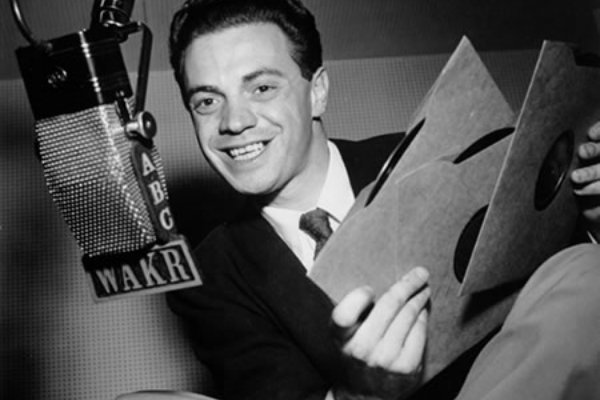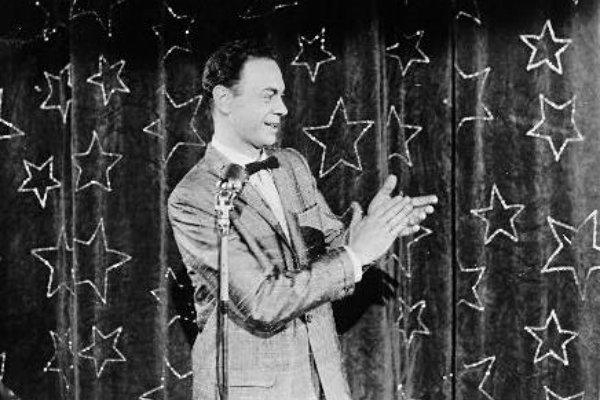ALAN FREED
During a decade when radio was losing its biggest stars to television, Alan Freed revived the medium with the music he labeled “rock and roll.”
Born on November 21, 1921, Freed began his broadcasting career in 1942. On July 11, 1951, Freed took the nickname “Moondog” and began hosting a program of rhythm and blues music on WJW/Cleveland. Within a year, Freed had become a local sensation, with an audience that crossed racial lines.
In 1954, Freed moved to WINS/New York, where he featured rock and roll’s early performers, including Bo Diddley, Chuck Berry and Frankie Lymon and the Teenagers. He later hosted a network show for CBS Radio and moved to WABC/New York in 1958.
Freed’s endorsement of rhythm and blues—and his subsequent popularity with both black and white teenagers—made him a lightning-rod for both racists and musical conservatives. His career effectively ended in 1959 when he was caught up in the “payola” scandal, accused of accepting bribes to play certain records. Despite his personal tragedies, Freed’s innovations helped make rock and roll and the Top-40 format permanent fixtures of radio.
Alan Freed died on January 20, 1965.
He was inducted into the Radio Hall of Fame in 1988.



